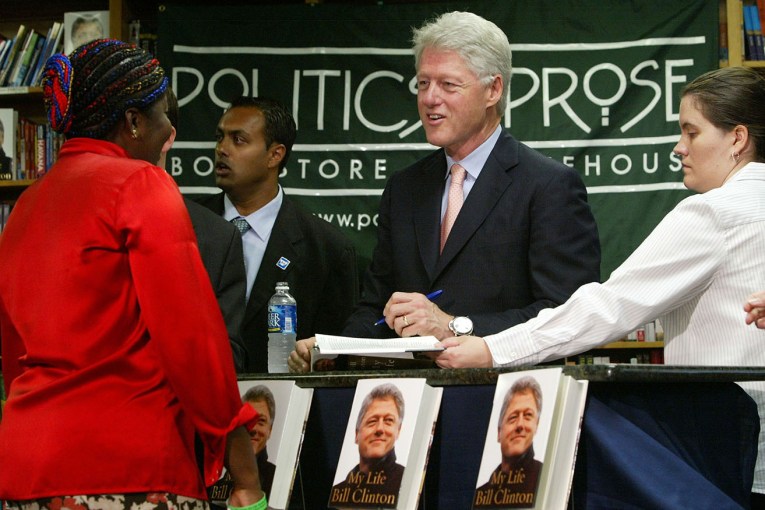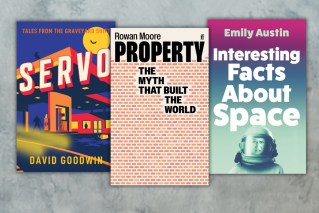Books you need to know about this November


Getty
This month we review Hilary Mantel, Christos Tsiolkas and J.M Coetzee’s new short story collections, Lena Dunham’s memoir, Not That Kind Of Girl, and Michelle De Kretser’s haunted tale Springtime: A Ghost Story, among several others.
· Frances Abbott still just does not get it
· Peter Carey calls government “inhumane”
 The Assassination of Margaret Thatcher
The Assassination of Margaret Thatcher
Hilary Mantel
4th Estate, HarperCollins Publishers
There’s a darkness licking round the edges of Hilary Mantel’s short story collection, The Assassination of Margaret Thatcher, deliciously in black with a gold-embossed rose bleeding over the twice Man Booker-winner’s name in blood red on the brilliantly enticing cover. The title lends its name to the final, fascinating yarn relaying the dizzying events of an alternate timeline in which one of Britain most-loathed Prime Ministers finds herself in the sightlines of an IRA man who inveigles himself into the home of an unwitting but not entirely unwilling woman. It’s an impeccably well-told tale wrought from sheer tension, but there’s also a wonderfully surreal moment when time appears to stop, and a crack in the universe lies revealed.
This disturbance in the fabric of things runs like a dark seam through these stories, most of which have been published previously, separately, but feel somehow inextricably bound. ‘Comma’ is a deliriously dark story of something half-glimpsed and malformed in the darkness of an old mansion and the insatiable curiosity of kids, while a mundane adultery turns to body horror in ‘The Long QT,’ and innocents find blood on their hands in ‘Winter Break.’ A master of language, the author of Wolf Hall and Bringing Up The Bodies is just as adept in short, viciously sharp blasts.
Buy The Assassination of Margaret Thatcher here
 Three Stories
Three Stories
J.M. Coetzee
Text Publishing
Before Mantel there was J.M. Coetzee. The South African born Adelaide-based author was the first to twice take home the Man Booker prize, not to mention his handy Nobel Prize for Literature in 2003. ‘He and His Man,’ the final of three of the previously published stories collected here, was written as his acceptance speech for the Nobel, and it’s a beautiful tale that posits Robinson Crusoe returned home to Britain. ‘A House in Spain’ opens with an old man’s wonderfully cantankerous assertion that you cannot fall in love with a house, before doing the very same thing and ‘Nietverloren’ is a haunting tale of history abandoned as the old farms of his homeland are given over to grazing herds and tourist attractions. All are impeccably crafted and a joy to read, with the book itself beautifully presented in duck egg blue and inlaid gold too.
Merciless Gods
Christos Tsiolkas
Allen & Unwin

Hot on the heels of his fifth novel, Barracuda, Christos Tsiolkas’ collection of short stories hums with the visceral thrum palpable since his very first, Loaded, published in 1995. Gazing unblinkingly at sexuality, gender, nationality, love, family and mateship, these tales, some of which have been published elsewhere, span his entire career, with Civil War dating back to that very year. It opens with a typically Tsiolkas brazen line, “After drugs there is only God,” with the influence of religion another common thread.
The title story, a new yarn that opens this collection, oozes with unease. Tsiolkas is adept at unravelling fragile social structures, with the simmering rivalry between a group of drunk and high friends at a dinner party gone awry revealing just how little held them together in the first place. There’s a muscularity to his prose that walks the finest line between tenderness and revulsion, often at the same time, and Merciless Gods is all the more thrilling for it.
 Not That Kind Of Girl
Not That Kind Of Girl
Lena Dunham
Random House
The most talked about memoir of 2014, Lena Dunham’s how-to guide to life for young women is not for the faint hearted; it’s a high dive straight into the inner chasms of Dunham’s intense, sometimes interesting, and often absurd brain. Dunham takes you back to her privileged New York childhood, one that was made difficult by the author’s many idiosyncrasies and medical conditions, through to her awkward high school and college years, and finally to her hit TV show, Girls, and meeting Mr. Right.
Not That Kind of Girl had to stand-up against the best to be a classic, like Tina Fey’s hilarious and self-deprecating Bossy Pants or Dunham’s friend American writer David Sedaris’s Me Talk Pretty One Day. But while this book potentially serves as a touchstone for women who are worried about their less than perfect bodies or love-lives, Dunham comes across as immature and embarrassing – rarely funny. While some may find it refreshing to read that a famous female’s romantic pursuits are relatively normal, it was hard to endear oneself to a successful woman who is so vacuous. She’s an epically talented writer but Not That Kind of Girl made me think she has a lot of growing up to do. (Antonia Acott)
Buy Not That Kind Of Girl here
 Francis Plug: How To Be A Public Author
Francis Plug: How To Be A Public Author
Paul Ewen
Text Publishing
Paul Ewen, a Kiwi now based in London, has clearly spent a lot of time trawling the writers festival and book promo circuit, possibly while seriously on the lash. Whether that slander turns out to be true or not, in his debut novel he has created, in his fictional frustrated author cum alcoholic gardener Francis Plug, an alarmingly hilarious anti-hero, and one that has us hooting at his misadventures from the start.
Plug shows up early at various author’s talks, mostly so he can get stuck into the free bar before haranguing the literary talent of the day. Hence we have Salman Rushdie abused for his Midnight’s Children protagonist Saleem Sinai calling his penis a “soo soo,” double Booker-winner Hilary Mantel accused of faking her home address and an unfortunate incident involving the theft of royal property poop. Just wait till he tries to finger lift Thomas Keneally’s book signing table. Outrageously good.
 Springtime: A Ghost Story
Springtime: A Ghost Story
Michelle De Krester
Allen & Unwin
One of the spookiest things about Nicholas Roeg’s 1973 film adaptation of Daphne Du Maurier’s short ghost story Don’t Look Now, about a married couple apparently haunted by the spirit of their dead daughter, was the decision to film in Venice during foggy winter, long after the tourists have left, turning the familiar on its head.
There’s something of that unsettling nature to this effective novella by Miles Franklin award-winning De Krester that posits a creepy, barely glimpsed house with a ghostly presence that seems at odds with the lush Sydney springtime. Beautifully presented, Springtime: A Ghost Story may be brisk, but it leaves and indelible mark as our protagonist Frances, recently relocated from Melbourne, begins to wonder if she can see beyond the mortal coil. And in true ghost story fashion, the twist ending is a sucker punch.
Buy Springtime: A Ghost Story here
 Infidelities
Infidelities
Kirsty Gunn
Faber & Faber
Something of a strong month for short stories, Gunn’s Infidelities shares some common ground with Tsiolkas’ in that notions of love, sex and loyalty proliferate. Looking at infidelity in all its many faces, both indiscreet and not so much, the tales are riven with hopes, desires, secrets and lies. Her ability to thread us into the innermost thoughts of her characters and their moral reasoning is captivating, with an almost poetic mastery of language and an impeccable sense of place.
Divided into three sections, Going Out, Staying Out and Never Coming Home, the opening tale, A Story She Might Tell Herself, is arresting. Helen, smothered in her marriage, is suddenly awoken from her stupor by the mysterious arrival of a Tibetan monk in their sleepy village, leading to a truly mesmerising late night escape deep into the woods. Powerfully relatable stuff.
 Mr Mac And Me
Mr Mac And Me
Esther Freud
Bloomsbury
The oft-spoken adage that truth is stranger than fiction holds true in Hideous Kinky author Esther Freud’s latest novel. The Mac of the title is famous Scottish architect and artist Charles Rennie Mackintosh. Though the designer of the Glasgow School of Art, badly damaged in a fire earlier this year, is now widely celebrated, in 1914 he was out of work, broke, ill and slumming it in a beach hut on the Suffolk coast with his fellow artist wife Margaret.
Told through the eyes of Thomas Maggs, the son of an alcoholic publican, Freud seamlessly blends fact with fiction as her impeccably researched novel heralds the outbreak of the First World War and the swirling paranoia that came with the enactment of the Defence of the Realm Act, leading to suspicions levelled at the door of Mackintosh. Despite this, the boy and the architect bond over a shared vision and the yarn unfolded here is something quite beautiful, with a finale that whisks it all down under many years after.








